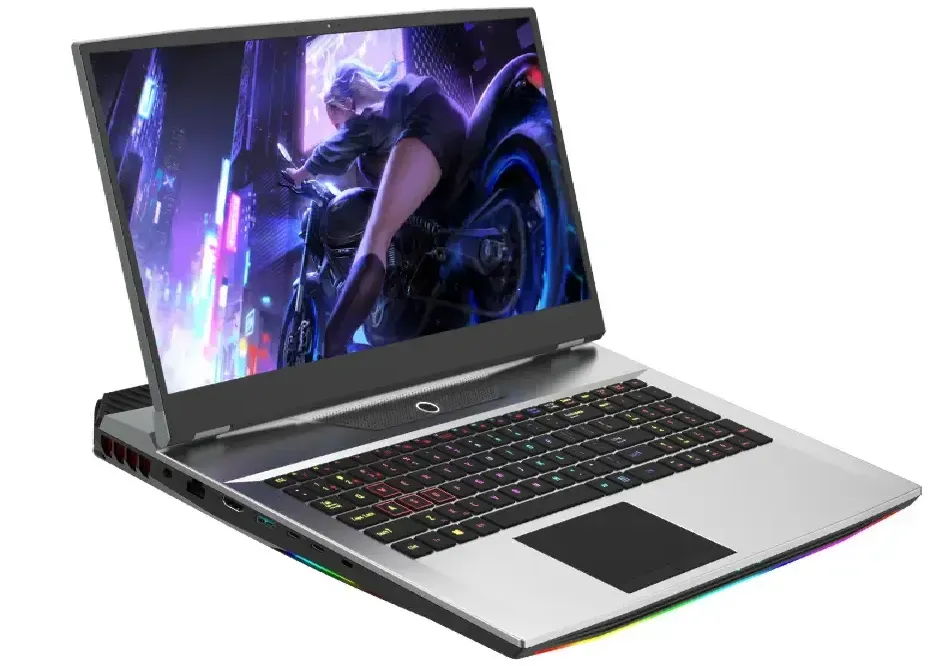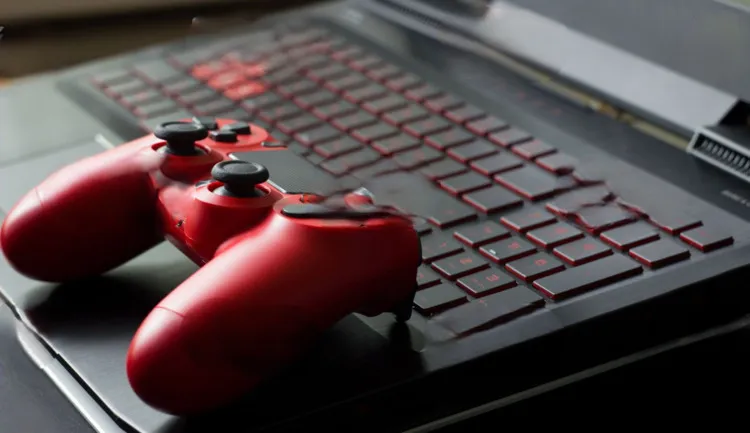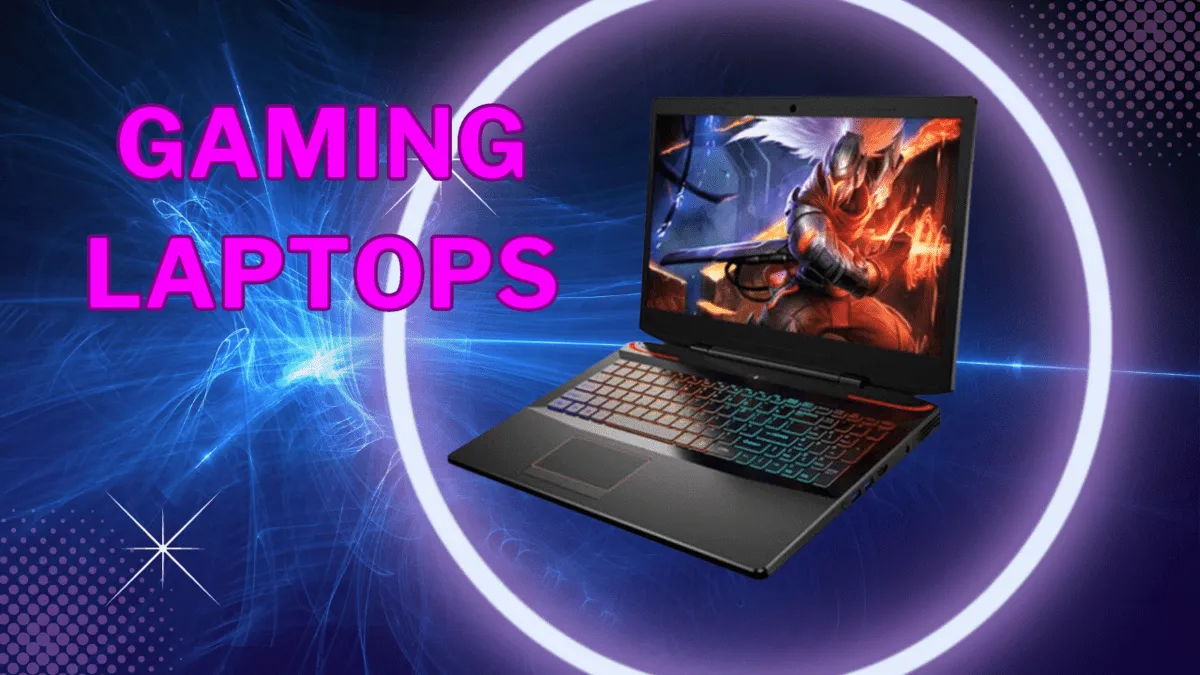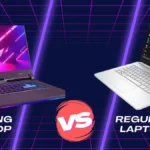Do you like playing games and are familiar with the world of gaming, then you’ve no doubt heard of gaming laptops. These portable powerhouses have revolutionized gaming, offering a compact platform that frees players from their desks. With advancements in technology, gaming laptops have gained immense popularity over the years. But what exactly is a gaming laptop, and how does it compare to a standard gaming PC? Whether you’re new to gaming or a seasoned gamer, this guide will help you understand gaming laptops, their features, and their pros and cons.
Table of Contents
What is a Gaming Laptop?
A gaming laptop is a mobile personal computer designed to enable gaming on the go and in environments where a desk is not available. While they share the core characteristics of standard or business laptops, gaming laptops come with upgraded features that make all the difference when it comes to gaming. These powerful machines offer high-performance speeds, ample memory capacity, top-notch graphics, and fast processing power, catering specifically to the advanced needs of gaming enthusiasts. Whether you’re facing human opponents or AI adversaries, a gaming laptop equips you with the power to dominate the competition.

Key Components of a Gaming Laptop
To better understand gaming laptops, let’s explore their key components and their functions:
1. Operating System
The operating system (OS) is a critical aspect of any laptop, as it determines which games can be played on the machine. Before investing in a gaming laptop, ensure it supports the games you intend to play to avoid any frustration later on.
2. Graphics Card (GPU)
The GPU is one of the most vital components in a gaming laptop, second only to the operating system. It processes data and transmits signals to the monitor, enabling games to be played with higher graphics settings and visual effects. A dedicated GPU with its own VRAM (video memory) is essential for smooth gameplay.
3. Screen
While gaming laptops come with adequate built-in screens, some players prefer larger displays for a more immersive experience. It’s possible to connect a bigger screen via HDMI, but this might affect performance and portability.
4. Screen Brightness and Resolution
A bright display is crucial to avoid squinting when gaming in well-lit environments. Aim for a laptop with a maximum display brightness of around 320 nits for optimal clarity. In terms of resolution, 1920 x 1080 is the minimum requirement for most gaming laptops to ensure sharp graphics.
5. Touch Screen Function
Some gaming laptops offer touch screens, beneficial for certain games, but not a necessity for most gaming experiences.
6. Peripherals and Extras
A gaming laptop should support additional peripherals like headsets and wireless mice, allowing seamless gaming experiences. Wi-Fi and Ethernet connectivity are also essential for online gaming.
7. Internal Cooling
Gaming laptops feature enhanced cooling options to prevent overheating during prolonged gaming sessions, ensuring optimal performance.
IPS and G-Sync: Enhancing the Gaming Experience
In addition to the key components, understanding IPS and G-Sync is essential for an enhanced gaming experience.
IPS (In-Plane Switching)
IPS is a screen technology that provides a wider range of colors and detailed graphics. Laptops with IPS panels offer superior visuals, making them ideal for gaming.
G-Sync
G-Sync, a technology developed by NVIDIA, aims to improve gaming performance by reducing input lag and eliminating screen tearing. AMD’s FreeSync provides similar benefits, delivering faster rendering without stuttering.
RAM: The Lifeline of Gaming
RAM (Random Access Memory) is vital for multitasking and smooth gaming performance. A minimum of 8GB is suitable for most gaming needs, but heavy multitaskers may benefit from 16GB or more.
SSDs vs. HDDs: The Storage Dilemma
When it comes to storage, SSDs (Solid State Drives) are the preferred choice for gaming laptops. They offer faster performance, lower energy consumption, and greater durability compared to traditional HDDs (Hard Disk Drives). However, HDDs with at least 512GB of capacity can also serve gaming needs well.
The Look and Cost of Gaming Laptops

Gaming laptops often boast a distinctive design, with bright colors, metallic finishes, and high-tech aesthetics becoming increasingly popular among gamers.
In terms of cost, gaming laptops vary widely depending on make and model. Prices range from £500 to over £3,000. You don’t necessarily need the most expensive model unless you require maximum performance while streaming and recording gameplay.
Lifespan and Portability
Gaming laptops typically last between 5 to 10 years, thanks to their modular construction, allowing for upgrades. However, they can become outdated relatively quickly due to rapid advancements in technology.
While gaming laptops offer portability, they are bulkier and heavier than standard laptops, often requiring a reliable power source for extended gaming sessions.
Gaming Laptops vs. Desktop Gaming Computers
Gaming laptops have made significant strides and are increasingly becoming the primary gaming machines for many players. They offer high speeds, impressive graphics, and upgradable parts. However, they might not match the raw power of high-spec desktop PCs.
Pros and Cons of Gaming Laptops
In conclusion, let’s weigh the pros and cons of gaming laptops to help you decide if they’re the right choice for you:
Pros:
- High speeds and efficient CPU for seamless gaming
- Sufficient RAM for multitasking and smooth performance
- High-quality graphics cards for an immersive gaming experience
- Enhanced audio quality
- Some models offer upgradable components
- Durable and sturdy construction for long-lasting use
Cons:
- Limited battery life, requiring frequent access to a power source
- Bulkier and heavier than standard laptops
- Slightly less powerful compared to high-spec desktop PCs
In the end, gaming laptops offer a compelling solution for gamers seeking portability and high-performance gaming. Choose the right gaming laptop based on your specific gaming needs and budget, and embark on an unforgettable gaming journey anytime, anywhere.
FAQs:
-
What screen size is best for a gaming laptop?
If portability is a concern for you, a 15-inch laptop is a good balance between performance and portability. If you’re looking for a larger screen for a more immersive gaming experience and don’t mind a larger and heavier laptop, a 17-inch laptop would be a good choice. Ultimately, the best size for you will depend on your specific needs and preferences.
-
Which brand is best for gaming laptop?
It’s important to note that the “best” brand can vary depending on individual preferences, budget, and specific requirements. It’s recommended to research and compare different models of brands to find the one that suits your gaming needs best.




